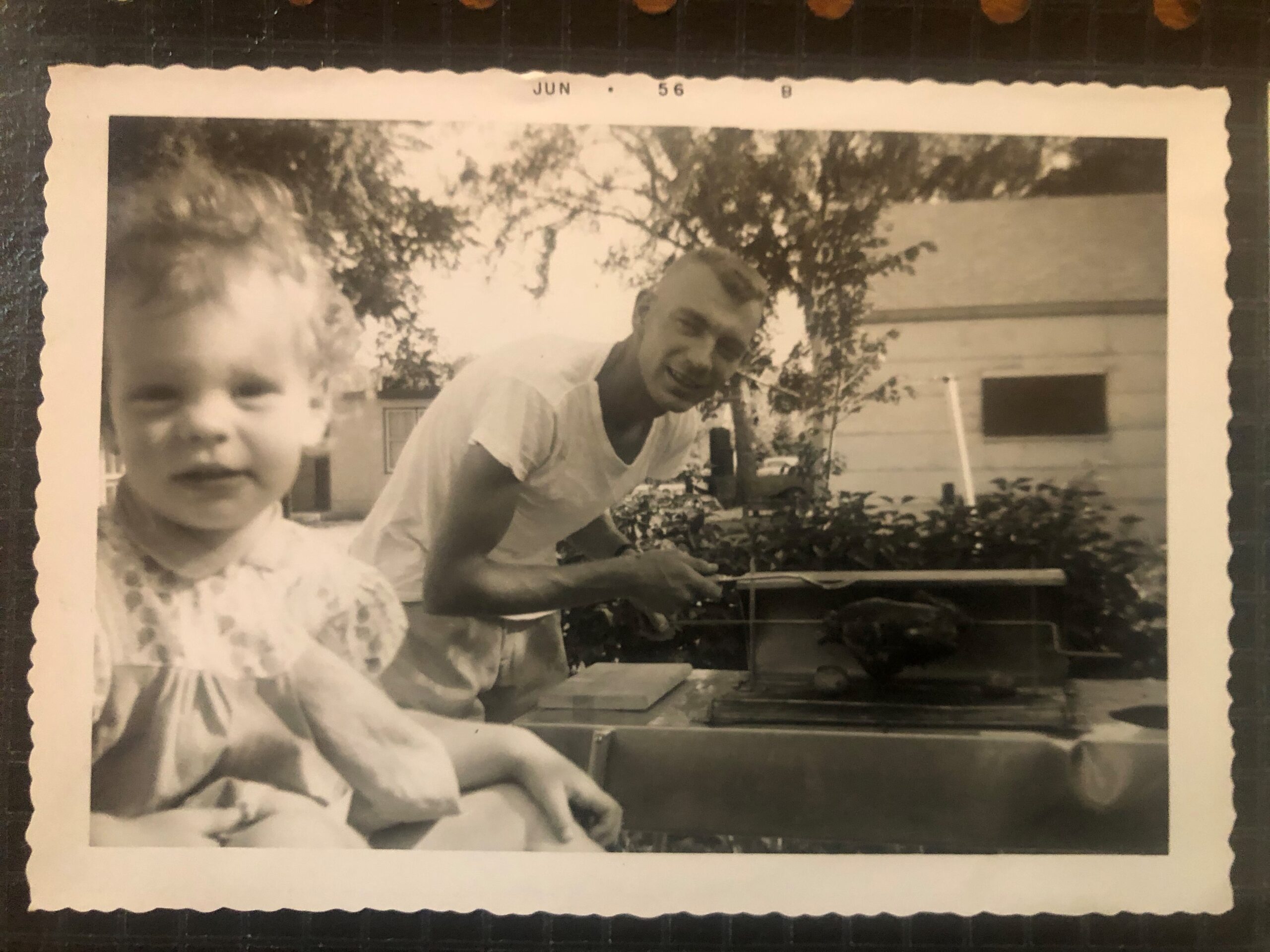Stories change attitudes, such as our views on relationships, politics, the environment, and even about health care through the end of life. If someone shares a story about the time they, too, experienced a life-changing moment, the information comes across less like a lecture and more like a personal truth. People don’t necessarily want to engage with a message. But a story? YES! It’s like, “Oh hey, let me hear what happened to somebody else.”
I lost my dad to cancer. He went from diagnosis to death in four months. It wasn’t supposed to be this way. It never is. Our father was 11 years younger than our mom. Mom had Parkinson’s. He was her caregiver. The scenario that played out in our heads was simply this: Dad would take care of Mom in their Texas home where we grew up in. My sister and I would fly in to help, from Miami and Seattle. But Dad would do the most.
On one of my sister’s visits, our dad complained of difficulty swallowing. After days of testing, the doctor’s suspicions were confirmed. Dad had six months to live. “Go home. Get your affairs in order. Enjoy spending time with your wife and daughters and grandsons.”
I thought we could beat this diagnosis. Dad and Mom could move to Florida. Enjoy that retirement they always wanted. But he never had the chance. The cancer hit him hard, and my sister and I became their caregivers.
Along with the emotional trauma of facing a loss is the stress of trying to determine how to honor the person’s wishes. But by then, the individual may not be able to express those wishes. Or, emotions may cause conversations to be less than fruitful.
This was my own experience. To help other families avoid some of the problems my sister and I faced, I created the film Honoring Choices.
Sharing Through Film
I chose to keep certain details from real life: The diagnosis. The fact that my dad wanted to be an astronaut (something he did not tell anyone until he was waiting for chemo and opened up to my sister). The older sister taking charge, bossy and not always empathetic (that would be me). The younger sister who was his primary caretaker unless he was in the hospital.
Other events were not true to my own story. For example, my dad did not receive the diagnosis over the phone. That was something I added because of the pandemic. I’m all for telemedicine but not for delivering this level of medical news. I know too many people who received difficult diagnoses over the phone.
Talking about Stories
Watching a film, like Honoring Choices or the popular movie The Bucket List, can help people open the lines of communication. So can reading a book, watching a TV show, or even hearing the story of a celebrity or of someone you know. (For real-life stories, remember to exercise care for the real people involved and their well-being.)
It’s okay if the conversation starts slowly and takes a while to develop. It can start with a casual conversation about how the characters in the film faced difficult decisions. It can be light- hearted, or a moment in the film can spark a deeper conversation.
Here are some ideas for how to start talking:
- Open simple with questions like “How did you feel about it?” or “What good things happen in the story?”
- Bring up a surprising moment that you didn’t expect.
- Start talking about the specific people in the story. Share who you identify with and why, or perhaps someone who sees the world differently than you.
- Discuss how the people might be feeling. Are there times when you have felt this way? What are the dynamics like between people?
- Talk about the imagery. This is particularly powerful when talking with children about a TV show or film (such as Coco or Onward). What scenes are soothing? Are there images that are difficult to watch or irritating?
- Consider what people are not saying. What body language do you see?
This kind of conversation empowers everyone involved. When we allow others to help us prepare for the future by sharing our individual values, we are offering them an opportunity to do something with us and not to us.
When I wrote Honoring Choices, I saw it as a way to spark conversations. As I wrote and re-wrote the script, I also saw it as a way to change the ending of my own story. I have long carried the sadness that we were not realistic about my dad’s prognosis, and did not encourage him to talk about what he wanted at the end of his life. Thankfully my family is open and even encouraging when it comes to sharing such stories.
It’s so important for people to have these conversations so their voices will be encouraged and heard, and so their wishes can be honored.
Elizabeth Coplan is an award-winning playwright, screenwriter, and founder of Grief Dialogues. To learn more, listen our February 2023 community call where Elizabeth will introduce the short film Honoring Choices and discuss the opportunities and the resources available for National Healthcare Decisions Day, along with other special guest.
Want to keep connected to The Conversation Project for more ideas from other communities? Sign-up for our community engagement newsletter, follow us on social media (Twitter, Facebook, Instagram, and YouTube), and feel free to reach us at ConversationProject@ihi.org.


